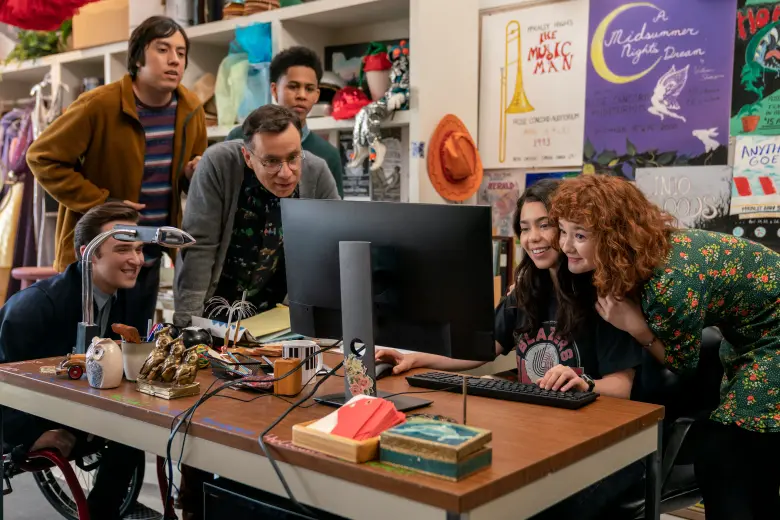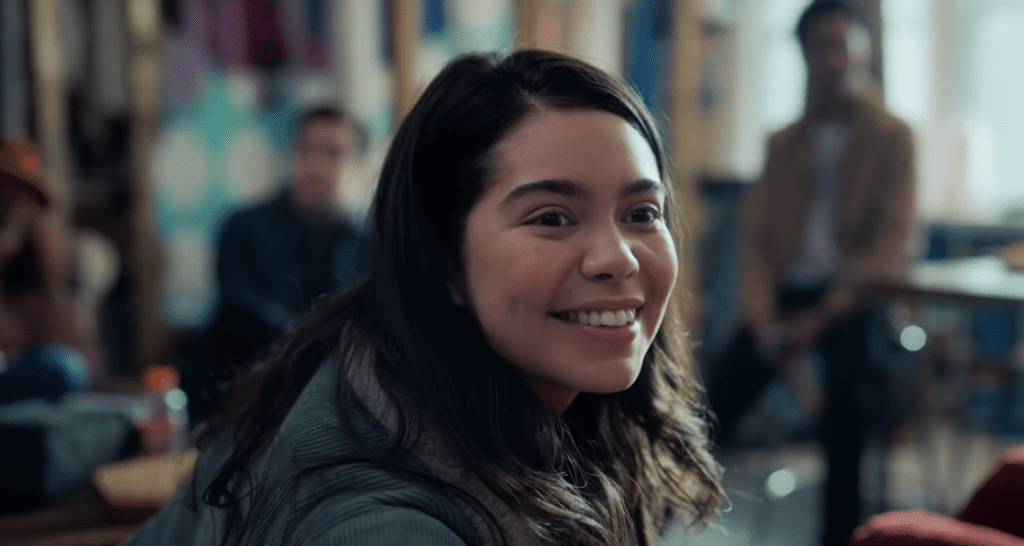Summary
Unfortunately, All Together Now doesn’t seem interested in exploring its characters. Instead, it throws an escalating series of bleak developments at you that by the end borders on parody.
Amber Appleton is just a normal high school student in your typical Netflix high school movie. She’s bright and optimistic, has ambitions, a diverse group of friends, a will-they-won’t-they crush, even a cool teacher she can talk to. Oh and also she works four jobs, sleeps on a bus, lives out of a backpack, is constantly guilted into silence by her somewhat alcoholic mother who stays with an abusive boyfriend despite Amber’s repeated urging that she feels unsafe around him. If you think that sounds like an awkward set up for a teen movie, you’d be correct. All Together Now, the new film by Brett Haley out on Netflix right now, doesn’t so much thread the needle between devastating and heartwarming as flatten both into a saccharine soup of high school movie clichés and paint by numbers plotting.
Auli’i Cravalho (Moana) makes her live-action film debut as Amber, a role she imbues with spirit, even if the script never rises to meet her. Amber wants to be a singer, a motivation that you wish the film would spend more time on. (Really, you wish it would spend time developing any of the characters.)
Her dream inches closer when she is invited for an audition at Carnegie Mellon (“Amber’s going to Pittsburgh,” her friend cries — as if Pittsburgh is the most exciting destination one could possibly imagine). The only problem is she needs the funds to fly there, and if the film has anything close to a narrative arc, its that Amber needs to learn to accept help from others (a thread that’s undercut by many moments in the film where Amber does accept help, but no one is there to say something like, “I’m just trying to help you,” so it doesn’t matter).

It all seems like standard teen fare, but any hope of All Together Now being a heartwarming premise is undercut by the severity of Amber’s condition. It’s difficult to feel charmed when the film cuts close to the reality — that 2.5 million children are homeless in America. Worse, it acts as a propaganda piece for bootstrap mentality; the reason for Amber’s situation, the movie explains, is related to her mother’s drinking and bad choices (instead of, I don’t know, maybe having a dysfunctional government that allows these things to happen).
At one point Amber resorts to sleeping on a park bench. Overnight, her backpack, containing her money and all her other possessions, gets stolen. Distraught, she lists the cherished items (such as a memento from her deceased father) she will never get back. And then the film just moves on, never mentioning those things again, leaving me to wonder; did she really care about those things? If she lived out of a backpack, how does she have so many outfits? When does she do laundry? Why do we just callously accept that situations like Amber’s are a natural part of society? Is it because of movies like All Together Now that normalize such things, rendering us inert to them in reality?
I may have gone too far with that last one, but you get the idea. The plot feels suited for a Ken Loach production, but everything else in the film wants to be like The Kissing Booth. The theme of being resistant to asking for help could be a cruel indictment of our individualistic society if the film cared about Amber’s situation as more than just a tragic backdrop to overlay with indie-pop songs with the hope of jerking a few tears.
Unfortunately, All Together Now doesn’t seem interested in exploring its characters. Instead, it throws an escalating series of bleak developments at you that by the end borders on parody. The film only comes alive when it lets its lead actress sing (or during a few excellent scenes with the always charming Carol Burnett). If anything, All Together Now just shows that Cravalho is a star waiting for a movie to show off her talents. All Together Now is not that movie.




